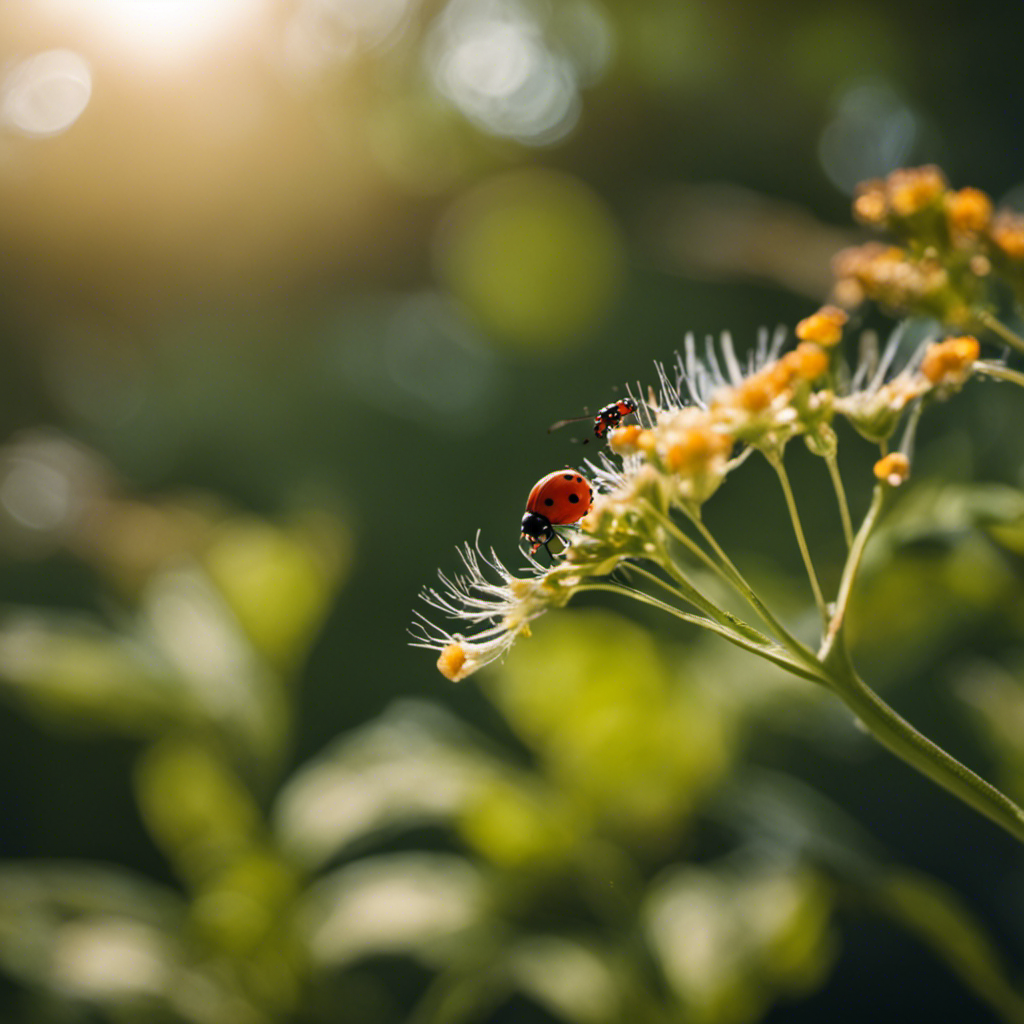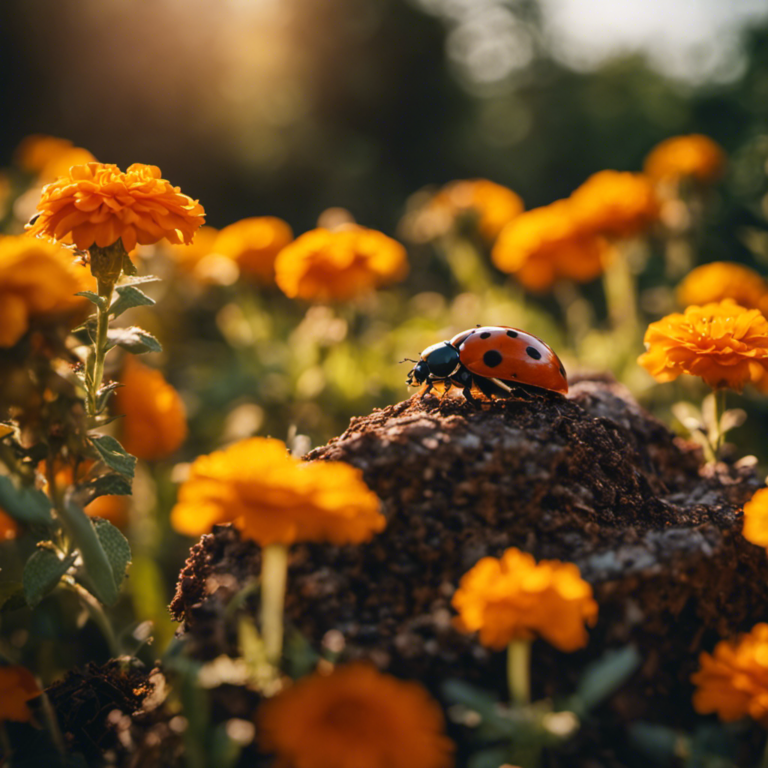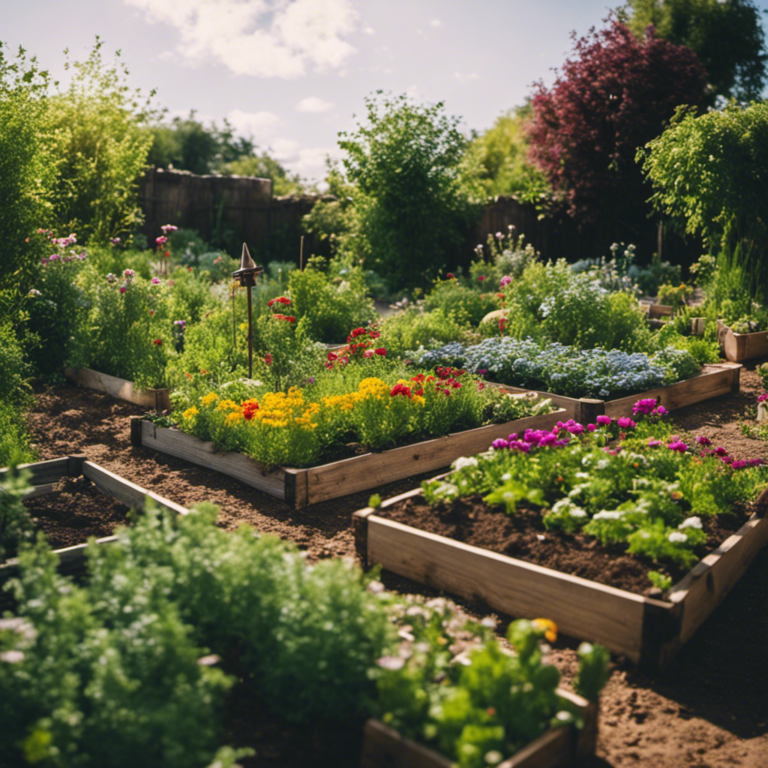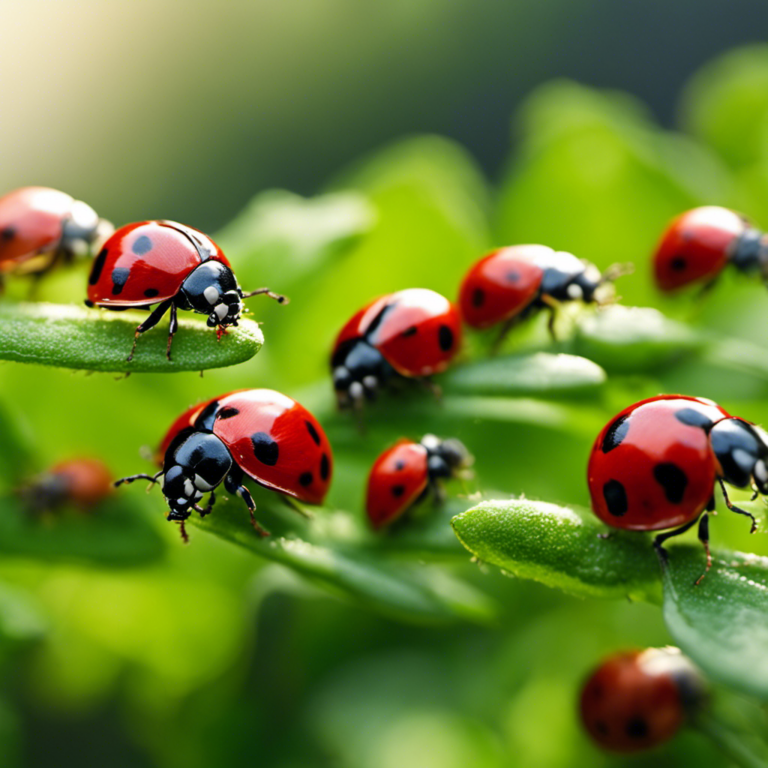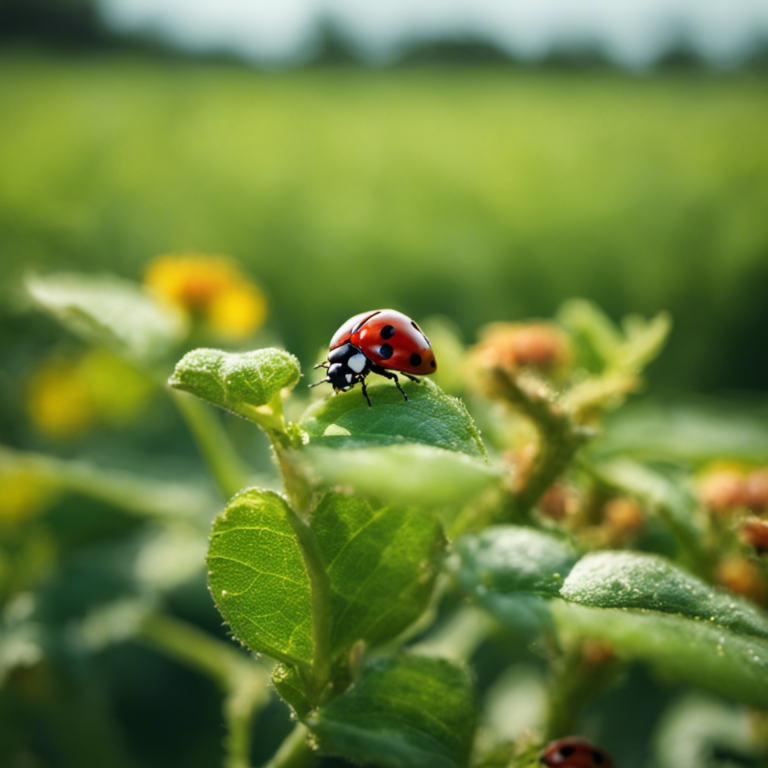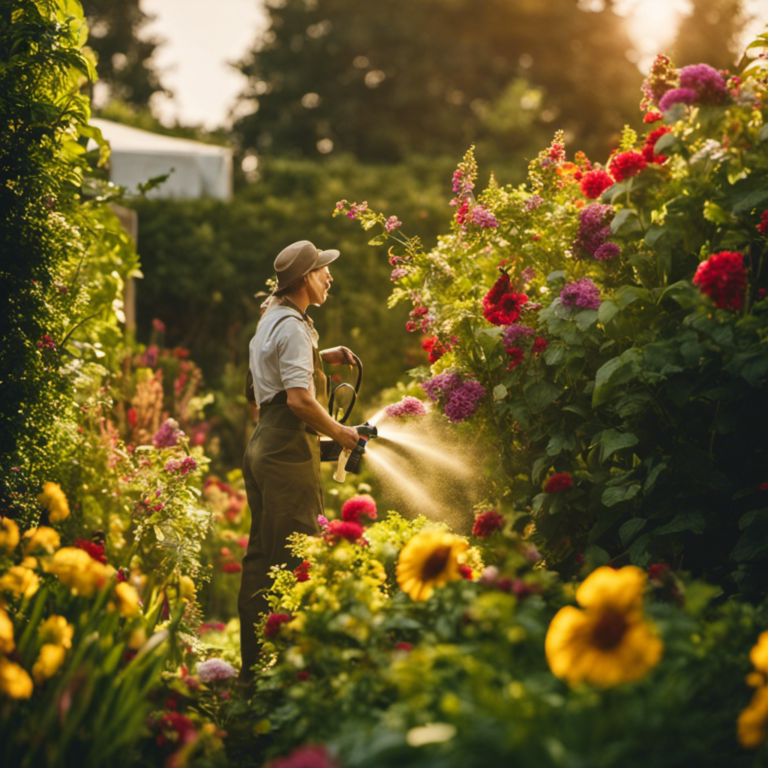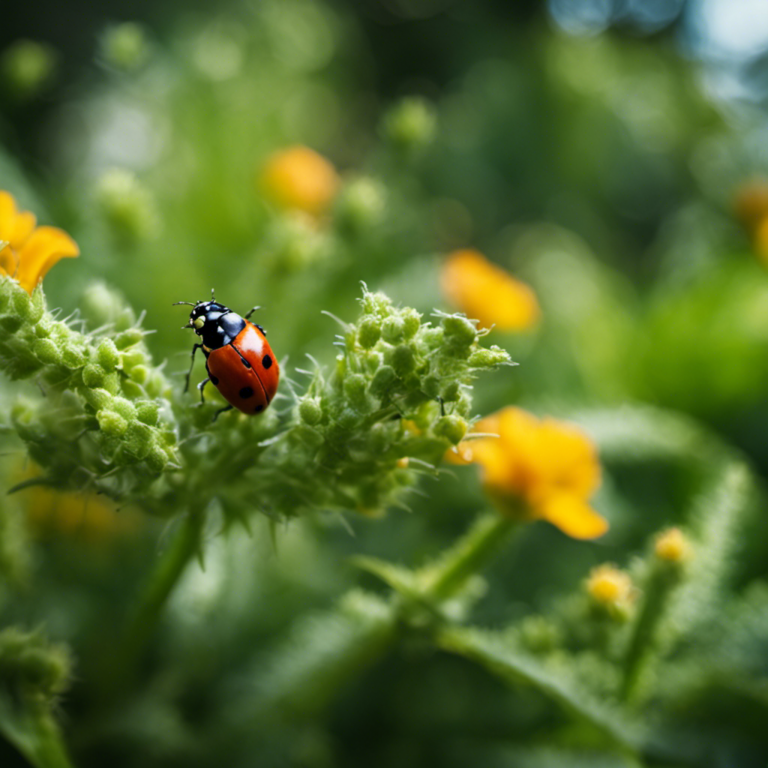Are pests causing problems in your organic garden? Learn about natural pest control methods to restore your garden oasis.
Discover the benefits of using safe and effective techniques that are friendly to the environment. With the right tools and knowledge, you can effectively combat pests using beneficial insects and homemade recipes.
Eliminate the need for harmful chemicals and create a thriving, pest-free garden. Take charge and nurture your plants using nature’s own pest management system.
Key Takeaways
Understanding natural pest control in organic gardens is essential for maintaining a healthy and thriving garden. Instead of relying on harmful chemicals, you can effectively manage pests by using beneficial insects, homemade organic pest control recipes, and essential tools. This not only protects the environment but also ensures the health and safety of your crops. So, embrace the power of natural pest control and see your garden flourish in ways you never thought possible. The secrets to a pest-free oasis are waiting for you!
Benefits of Natural Pest Control
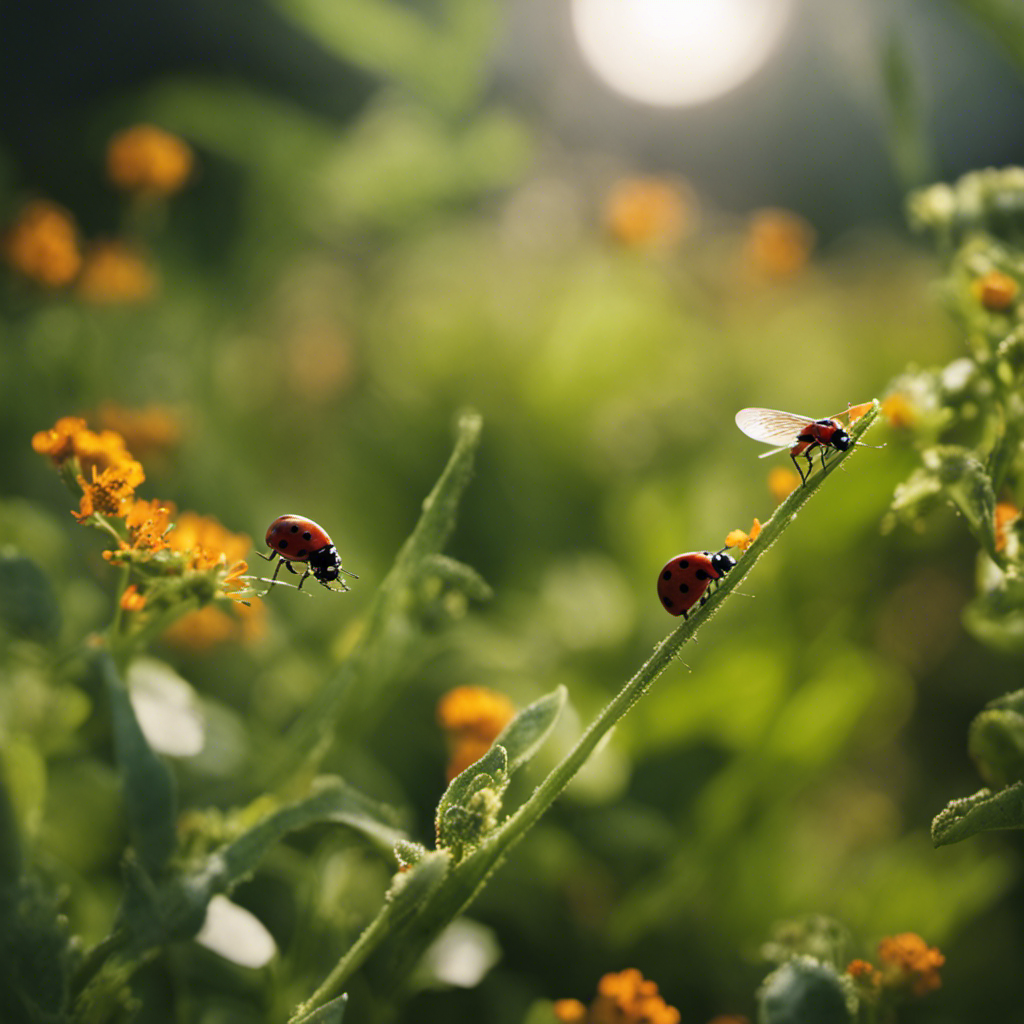
One advantage of using natural methods for pest control in organic gardens is the reduction of harmful chemicals that can have negative effects on the environment and your health. Instead of relying on toxic pesticides, you can implement techniques like companion planting, traps, and biological controls to manage pests.
This not only helps to preserve biodiversity and protect beneficial insects and wildlife but also minimizes the accumulation of chemicals in the soil, water, and air.
Moreover, natural pest control methods are often more cost-effective in the long term. Although there may be initial investments involved, such as purchasing beneficial insects or setting up traps, these methods provide a sustainable and ongoing solution to pest management, reducing the need for frequent pesticide applications.
As a result, you can save money while creating a safer and healthier gardening environment.
Essential Tools for Organic Pest Control
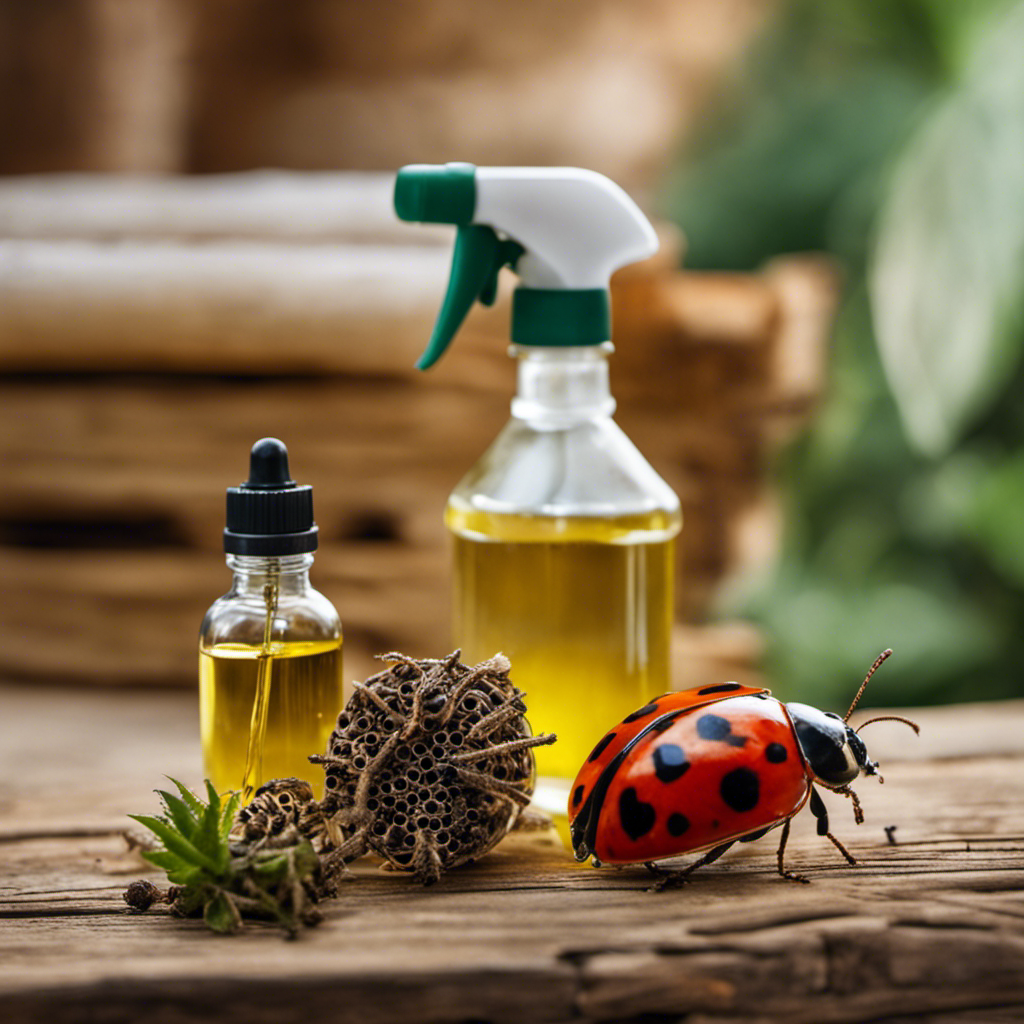
Organic pest control is essential for maintaining a healthy and thriving garden. To effectively manage pests, it’s important to have the right tools at your disposal.
One tool that’s crucial for organic pest control is a handheld sprayer. This handy device allows you to directly apply organic insecticides and fungicides to affected areas, ensuring targeted treatment. Look for sprayers made from durable materials like stainless steel or brass to ensure they last a long time.
Another important tool for organic pest control is a garden hose with a nozzle attachment. This versatile tool serves multiple purposes. It can be used to wash away pests, dislodge them from plants, and even apply natural pest control solutions. With the right nozzle attachment, you can adjust the water pressure to suit your needs, providing effective pest control without harming your plants.
In addition to sprayers and hoses, consider using sticky traps and barriers to physically prevent pests from accessing your plants. Sticky traps can be placed strategically around your garden to catch flying insects, while barriers like row covers or netting can create a physical barrier that keeps pests out.
Common Organic Pest Control Methods
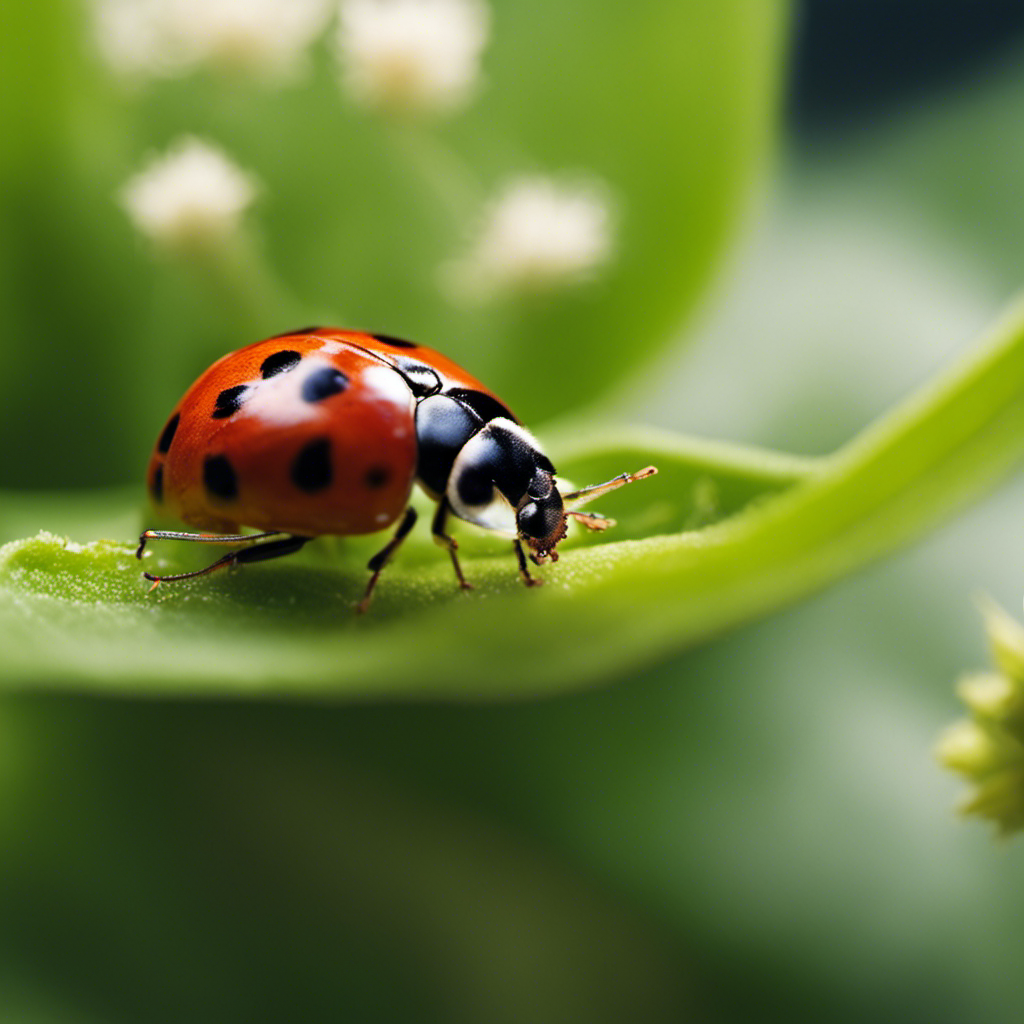
How can you effectively control pests in your organic garden using natural methods?
There are several common organic pest control methods that can help you maintain a healthy and pest-free garden. Here are three techniques you can implement:
-
Plant pest resistant varieties: One effective way to control pests naturally is by selecting plant varieties that are naturally resistant to common garden pests. These varieties have built-in mechanisms to repel or deter pests, reducing the need for chemical interventions.
-
Companion planting: Another method is to use companion planting techniques, where certain plants are strategically grown together to help control pests. For example, planting marigolds alongside vegetables can deter aphids and other harmful insects.
-
Crop rotation: Rotating your crops each season can disrupt pest life cycles and reduce the buildup of specific pests in your garden. This method helps prevent pest infestations and maintains a healthier garden ecosystem.
Using Beneficial Insects for Pest Control
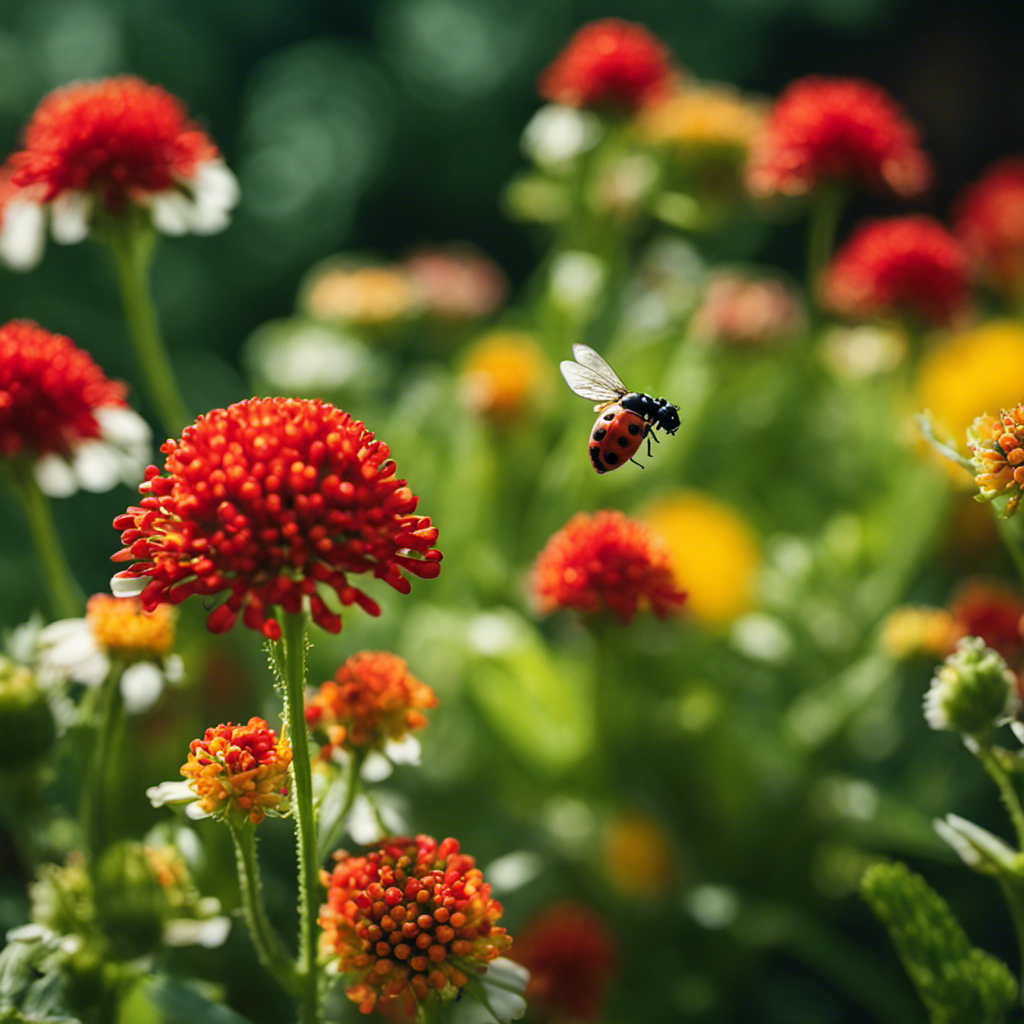
Utilizing beneficial insects in your organic garden is an effective way to control pests. These insects act as natural predators, feeding on harmful pests and helping to maintain a balanced ecosystem in your garden. By attracting and supporting beneficial insects, you can reduce the need for chemical pesticides and promote a healthier, more sustainable garden.
One way to attract beneficial insects is by providing them with a diverse habitat. Planting a variety of flowers, herbs, and grasses will attract a wide range of beneficial insects, as each species has different preferences. Additionally, you can refer to a table that identifies and recommends specific beneficial insects for your garden.
Homemade Organic Pest Control Recipes
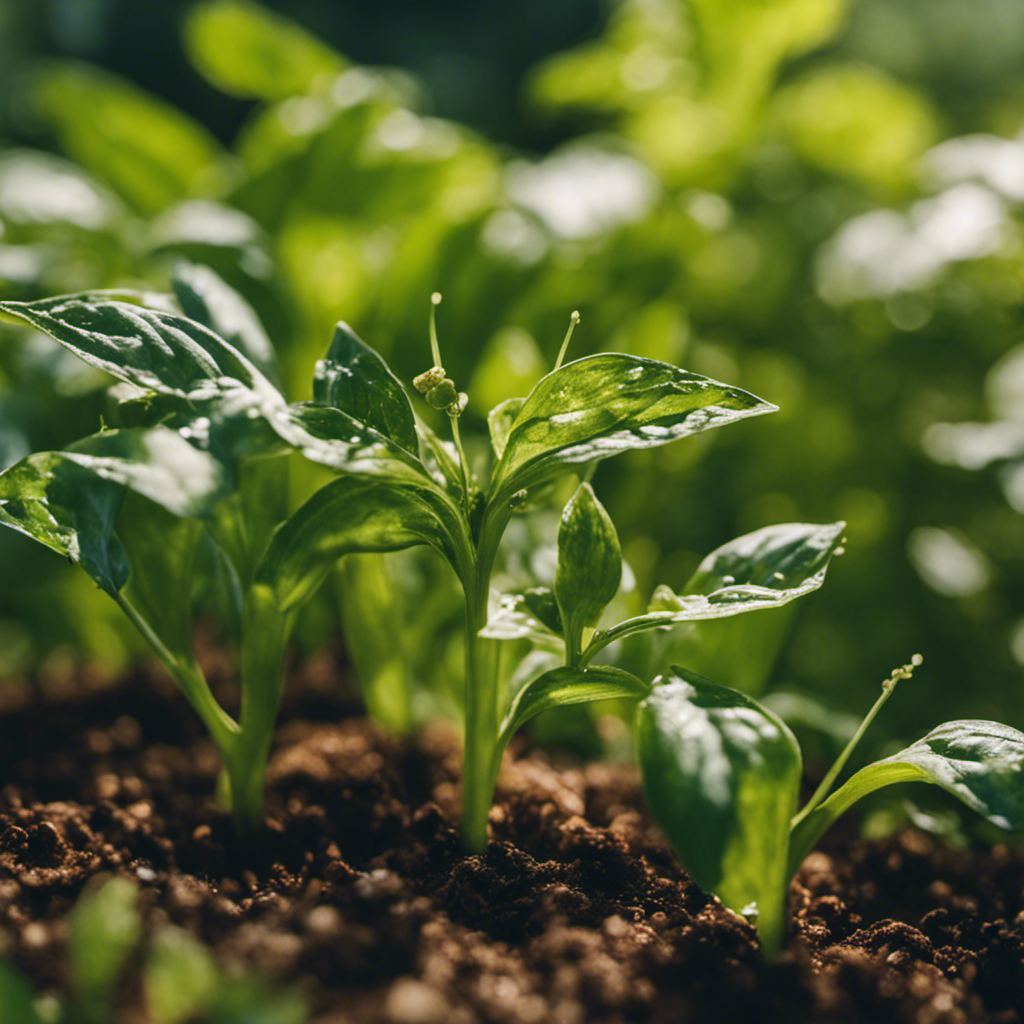
Once you have attracted beneficial insects to your garden, it’s time to take the next step and create homemade organic pest control recipes that will effectively address any remaining pest issues. Here are some natural pest control alternatives and DIY pest control methods that you can try:
-
Neem oil spray: Mix 2 teaspoons of neem oil with 1 quart of warm water and a few drops of dish soap. Spray this solution on plants affected by aphids, mites, and other pests. Neem oil disrupts the pests’ hormonal balance, eventually killing them.
-
Garlic and chili pepper spray: Blend 4 cloves of garlic, 2 hot chili peppers, and 1 quart of water. Strain the mixture and add a few drops of dish soap. Spray this solution on plants to deter pests like caterpillars, beetles, and aphids.
-
Beer trap for slugs and snails: Bury a container in the ground and fill it halfway with beer. Slugs and snails will be attracted to the beer and drown in the trap.
These homemade recipes offer effective and natural ways to control pests in your organic garden. By using these DIY methods, you can minimize the use of harmful chemicals and create a healthier environment for both your plants and beneficial insects.
Conclusion
Understanding natural pest control in organic gardens is crucial for maintaining a healthy and thriving garden. Instead of relying on harmful chemicals, you can effectively manage pests by utilizing beneficial insects, homemade organic pest control recipes, and essential tools.
This not only protects the environment but also ensures the health and safety of your crops. So, embrace the power of natural pest control and witness your garden flourish in ways you never thought possible. The secrets to a pest-free oasis await you!
